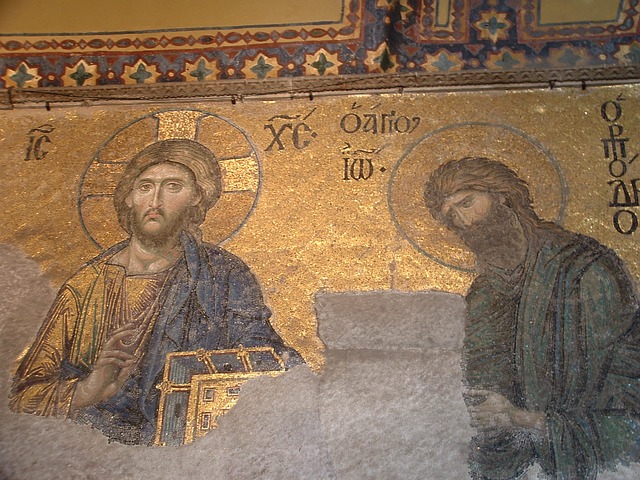What’s in a name? that which we call a rose
By any other name would smell as sweet
True facts, Shakespeare, true facts. And while I agree with the sentiment I can’t help feeling that actually there’s quite a lot in a name. Take İstanbul. Its name is the object of gods, empires, egos and power plays. It’s the subject of odes and the focus of arguments to this very day.

Byzantion or Byzantium (as the Romans later called it)
This name is the stuff of legend. The city was founded in 657 BC by Byzas, who was no less than the son of Gods! His father was Poseidon, God of the Sea, and his mother was Keroessa, daughter of Zeus, and therefore, slightly disturbingly, Poseidon’s niece. Anyway, the story goes that Byzas was told by an oracle to establish a city opposite the ‘land of the blind’. When he visited a town in current-day Kadıköy, he soon realized everyone there was blind (not literally though – stick with me). Byzas decided they were blind because the best place to settle a town was the land opposite where the Bosphorus and the Golden Horn created a natural harbor. And, ta-dah!, this wonderful city was born by some Godly, Oracle-led magic. It’s also said that the Golden Horn was named after his mother being ‘chryso kéras’ in Greek.
Constantinopolis or Constantinople (Same word, different case endings – Greek grammar ftw)
About 1000 years later, in 330 AD, the city was given a name change. The Roman Empire had been floundering for a while and was experimenting with partitioning itself into four regions, each with its own leader. The colossal egos of these leaders, however, ensured that this didn’t exactly go to plan. In 306 AD, Constantine the Great inherited power in one of the Western regions and soon set about getting the whole Empire for himself. He eventually emerged victoriously and decided to relocate the capital of the Empire to the unruly East so that he could keep them in check. After settling on Byzantium as the future center of the Empire, he decided that a city named after the son of a God was not quite grandiose enough. And so he named it after none other than himself. However, Byzas had the last laugh as, after more fighting and partitioning, the Eastern Roman Empire was eventually known as the Byzantine Empire.
Istanbul
About another 1000 years later the city was given another name change. The Byzantine Empire was on its last legs in 1453 when the Ottomans besieged and won Constantinople. The origins and use of this new name are fairly vague though. The Ottomans used both Kostantiniyye and İstanbul and it’s quite probable the latter was in use long before the Ottomans took power. It apparently comes from ‘eis tin polin’ or ‘stin poli’, meaning ‘to the city’ in Greek, and might well stem from a long-standing and slightly lazy habit of shortening the previous name to ‘polis’ (‘city’). However, this Greek heritage didn’t stop a number of Sultans claiming the root of the name as Islambul or Islambol in an attempt to solidify their place as the center of the Islamic world – nice try fellas! In 1930, the young Turkish Republic declared İstanbul the official name of the city encouraging other countries to follow suit. Constantinople and other international names, such as Tsarigrad, were finally laid to rest. And so it would seem, if history is anything to go by, we’re stuck with the name İstanbul for another 500 years or so. Only time will tell what the next name-change will be…










Great title. Article also wonderful, but, I like titles. Great title.
I have to add though, I’m curious as to the words ASİTANE and DERALİYE, both of which pass as the answer to ‘İstanbul’un eski adı’ in Turkish crosswords. Constantiople is never the answer, interestingly.
It’s actually “so good they named it about 8 times”, but that didn’t have the same ring to it…
Ps. After extensive research (or a look at wikipedia) I think Asitane and Deraliye are names for the Ottoman decision makers taken from places in Topkapi Palace where they made the decisions. They became references to the city in the way Whitehall is sometimes used to talk about the powers in London.
Gotta agree…great title and great piece!
Gotta agree…great title and great piece!
Beth, this is so great!
Beth, this is so great!